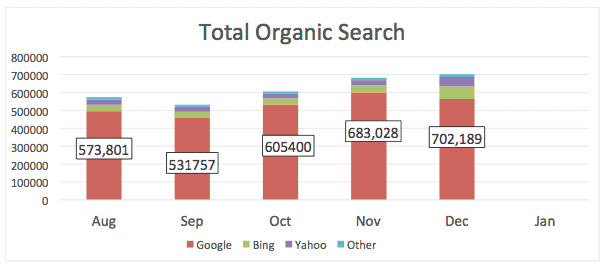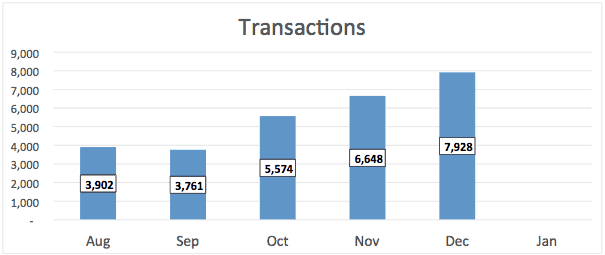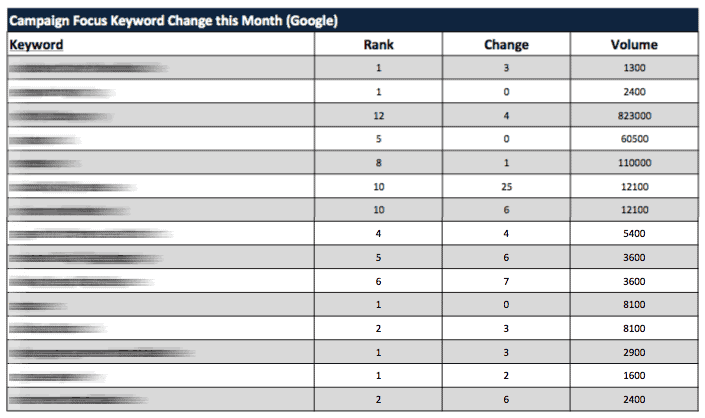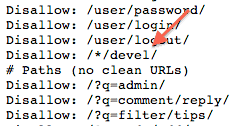The words “reporting day” used to give me anxiety. As a beginner in the field of SEO, surrounded by hard working and extremely intelligent coworkers, I felt overwhelmed by it. Would I understand what was needed of me? Would I get it done in time? Would I do a good job? The hardest part was that I felt like I didn’t understand the big picture for the clients I was working on well enough to do the reports. Turns out I went from anxious and intimidated to excited in just one month.
As I started really owning the work on certain accounts, I started realizing that I not only felt more comfortable on reporting day, but that I was looking forward to plugging in the data and analyzing trends. I realized that while doing the report I was learning so much about these accounts, and it was helping me to better manage my clients. I was lucky because I started really working on reports at about the same time that we rolled out a new reporting template. This template makes it easier to start prepping for reporting day even up to two weeks beforehand. That’s when it hit me – reporting day isn’t a day, it’s a continuous process, and one that has actually helped me become better at my job.
This was me before our amazingly awesome new reporting template:

And this is me after our amazingly awesome new reporting template:

Spotting Trends
Most of the month is spent continuously working on various aspects of optimization for clients, but the actual day of reporting is when we can really take a look at month over month trends. The reporting template that we use makes the data entry portion of the reporting process really easy, and it also helps create a clear picture of what all of the data means for an account (see the Moz blog post linked to above). Data entry made easy means that I can spend more time focusing on analysis of the data and trends. What’s going on with organic search? Is it up or down? Why? What does it mean if search is down but transactions are up? Or vice versa? What’s going on with indexation – why is there a big jump or a big drop? These are the types of things that I can easily spot now, and I can spend time working out what they mean.
In the example below, an e-commerce client, we can see that organic search has increased along with transactions and revenue. The trend here looks good – a steady increase in the last few months with a nice bump in December (which is partially attributed to holiday traffic).
Ranking Trends
Trends in organic traffic, transactions, and revenue are just the beginning of the types of insights you can get while plugging data into our reporting template. We have entire sections of our report dedicated to analyzing keyword ranking trends for our clients. I happen to spend a lot of time working on on-page optimization for many of my clients, meaning title tags and on-page text recommendations. A lot of keyword research goes into this work, and as Ari and Aaron constantly remind us, it’s an art as much as it’s a science. You can write a title tag and you can check on it’s progress every single day to see if it effected the ranking of that page, but what’s really cool is being able to see month over month ranking data for certain keywords. That’s when you can really take a step back and see the effect your work has had. I’ve personally had some eye-opening discoveries when looking at ranking trends for some of my clients.
The example below shows the type of month over month data that we get from our reports. We can see the keywords that we’ve chosen to track (again, based on keyword research, these keywords are most likely being used in titles and on-page text), their current ranking compared to the previous month’s ranking, and the associated volume. This provides a clear way to see the effect of the keywords we’ve chosen to use. For example, we can see that one of the keywords below moved 25 spaces to position 10 on the first page of Google in just a month! This is a nice win and tells us that the way we’ve chosen to use that word is working. For me, it really solidified the importance of title tags and on-page text.
Spotting Red Flags
While our job is to regularly be working on optimizing our clients’ sites (both on-site as well as off-site), we also need to constantly be monitoring and looking out for possible red flags. We do this on a regular basis, but reporting allows us to help our clients understand this process. For example, we regularly check on the indexation status for our clients’ sites, and our reporting template has a section of it’s own to help explain to them what we’re seeing. In the process of explaining this to the client, I personally learned a lot. A few months ago I found a significantly large spike in indexation for one of my clients:

This quickly forced me to learn about possible causes and implications – what could be causing such a big jump in indexation? Is this a bad thing? Aaron and I looked into it and realized that the development site URLs were being indexed accidentally. Knowing this, we were then able to talk with the development team to prevent the issue from occurring in the future. Because there’s an entire section dedicated to indexation, I was able to discuss all of this with my client, showing him the graph and explaining what it meant as well as what we’re doing to fix it.
The indexation issue I discovered above was also an important lesson for me because I learned how to fix it by getting hands on experience with deindexing sections of the site via robots.txt. We added a rule, disallowing the crawl of any URL with the word “devel” (short for “development”) so in the future Google will remove them from the index:
For those of you who have been working in SEO for a long time, this may seem like no big deal, and for those of you who have never worked in SEO, this probably seems like gibberish– however, for me, learning about robots.txt was pretty exciting. That’s right, I said the words “robots.txt” and “exciting” in the same sentence. I may love chick flicks, manicures, & shopping, but who’s a geek now!?
Client Relationships & Management
The type of open communication provided by our reports is really important when it comes to managing client relationships. The clarity provided by these reports allows me to jump on a call with my clients and easily run through their account status. We also need to remember that our clients are not SEO experts – we are. Therefore, they may not understand what we’re trying to tell them unless we explain it in a language that makes sense. These types of reports allow for our clients to see a clear picture of how they are doing in a way that makes sense to them, allowing for collaborative discussions. There’s so much going on at work on a daily basis, especially when you have multiple accounts to be paying attention to. At the end of the day, every single account that we work on matters, and having been in a client facing service industry for the past 4 years, I can say that showing clients that they matter is extremely important.
Basically… Reporting Rocks
Reporting has taught me how to give each and every client the time and attention they deserve, and it has taught me a lot about SEO. Understanding how to analyze the data has given me the confidence boost I needed to push me further in my job. As I mentioned earlier, a lot of work on a daily basis goes into maintaining the health of the accounts we work on, and reporting is a neat and pretty package tying up that work.





